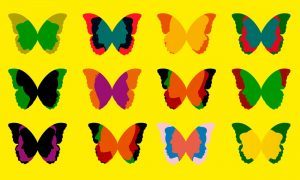Kwame Anthony Appiah in The Guardian:
 In April 2015, after a long and very public career, first as a male decathlete, then as a reality TV star, Caitlyn Jenner announced to the world she was a trans woman. Asked about her sexuality, Jenner explained that she had always been heterosexual, and indeed she had fathered six children in three marriages. She understood, though, that many people were confused about the distinction between sexual orientation and gender identity, and so she said: “Let’s go with ‘asexual’ for now.”
In April 2015, after a long and very public career, first as a male decathlete, then as a reality TV star, Caitlyn Jenner announced to the world she was a trans woman. Asked about her sexuality, Jenner explained that she had always been heterosexual, and indeed she had fathered six children in three marriages. She understood, though, that many people were confused about the distinction between sexual orientation and gender identity, and so she said: “Let’s go with ‘asexual’ for now.”
Isn’t it up to her? What could be more personal than the question of who she is – what she is? Isn’t your identity, as people often say, “your truth”? The question is straightforward; the answer is anything but. And that’s because a seismic fault line runs through contemporary talk of identity, regularly issuing tremors and quakes. Your identity is meant to be the truth of who you are. But what’s the truth about identity? An identity, at its simplest, is a label we apply to ourselves and to others. Your gender. Your sexuality. Your class, nationality, ethnicity, region, religion, to start a list of categories. (Raise your hand if you are a straight, male, working-class, Afro-Latinx evangelical US southerner.) Labels always come with rules of ascription. When we apply a label to ourselves, we’re accepting that we have some qualifying trait – say, Latin or African ancestry, male or female sex organs, attractions to one gender or another, the right to a German passport.
More here.
